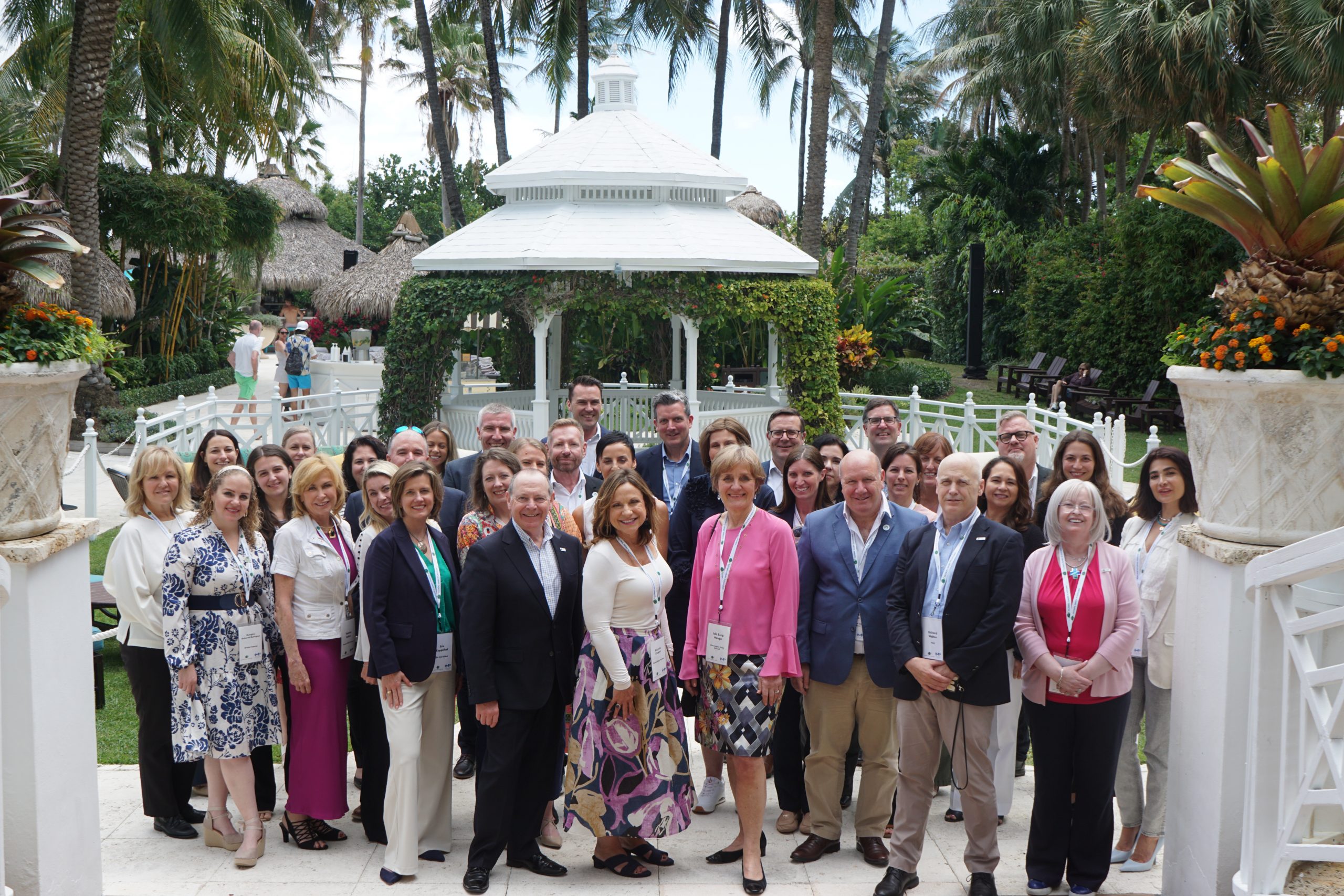GDP Bulletin May / June 2024
Record Engagement Numbers for World Milk Day 2024
The dairy sector came together in a big way once again for the World Milk Day campaign on and around June 1. Thanks to contributions from more than 100 countries from Australia to Zimbabwe, the campaign tallied a record 2.7 million engagements and more than 924 million impressions. Although impressions were lower than the previous year (1.3 billion), they were higher than the last time WMD was on a weekend (664 million in 2019).
Some of the highlights included:
- A Guinness World Record event in Armenia with 7,469 people drinking milk simultaneously.
- Many photo- and video-focused campaigns that featured farmer videos, selfies with cows, milk mustache contests and more.
- Several paid campaigns that kicked off on World Milk Day, with most focusing on the nutritional benefits of dairy products.
Here is the full report of the WMD results.
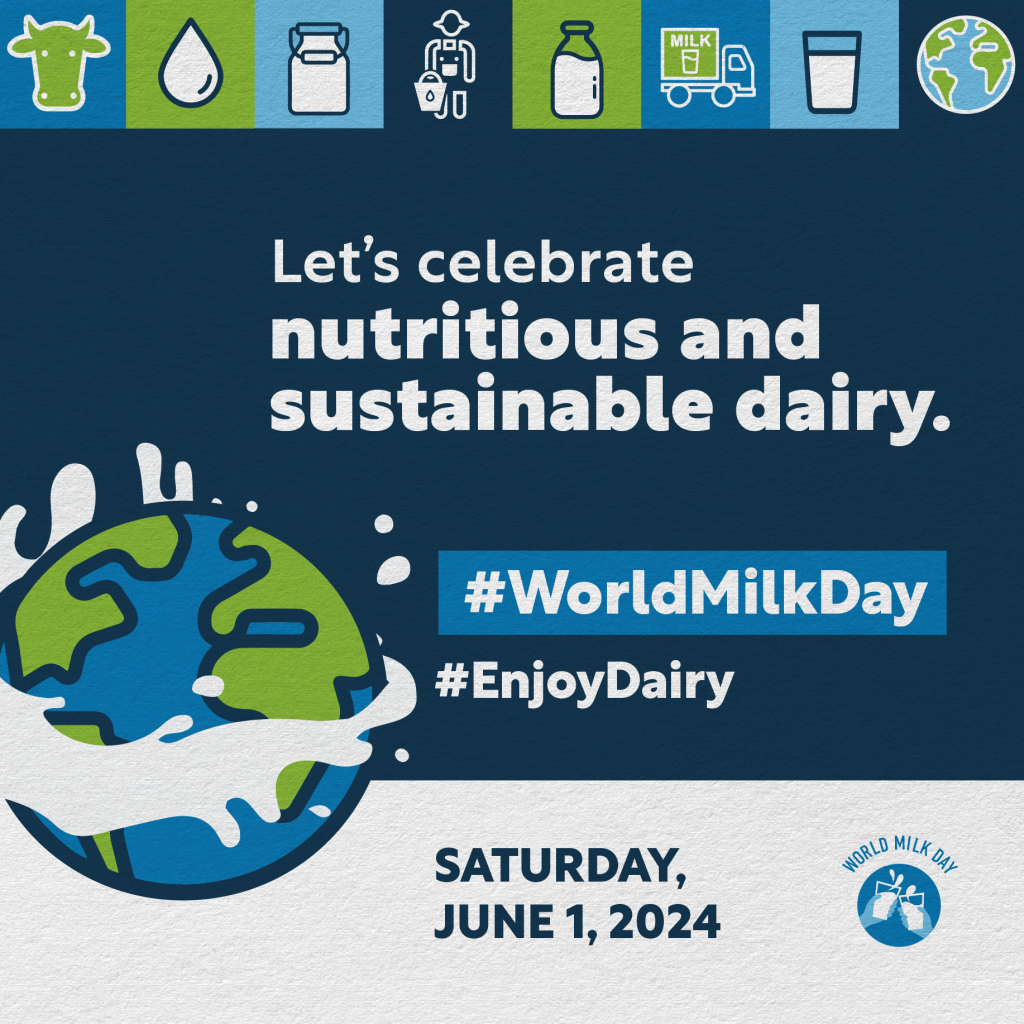
P2DNZ Work Driven by Global In-Person Workshops
Pathways to Dairy Net Zero (P2DNZ) is a global leader in organizing and driving collaboration to help the dairy sector make progress on net zero goals. In developed economies, the day-to-day work is focused on several workstreams. Three of them – GHG Accounting Task Force, Dairy Processing Task Force and Animal Nutrition Task Force – conducted in-person workshops in the last three months to identify pre-competitive actions and plan future work. Here is a look at each:
GHG Accounting: One year after its initial meeting, the task force met in-person in early June in Copenhagen to review progress and priorities and discuss timelines and resources required to ensure the outcomes deliver as much impact as possible on the GHG Protocol’s Land Sector and Removals Guidance.
Dairy Processing: In late May, several commercial companies and association members gathered in-person in Chicago and online for the Dairy Processing Task Force’s first workshop. During the workshop, participants examined the processes surrounding receiving, pasteurization, transfers and stores, and cleaning in place. The task force is supported by a grant from Tetra Pak and is open to all dairy companies and equipment suppliers.
Animal Nutrition: More than 30 participants took part in the Animal Nutrition workshop in Leiden, the Netherlands in late April, representing a variety of companies and organizations in the dairy value chain. The workstream is supported by a grant from Trouw Nutrition and is open to all companies & nutrition suppliers.
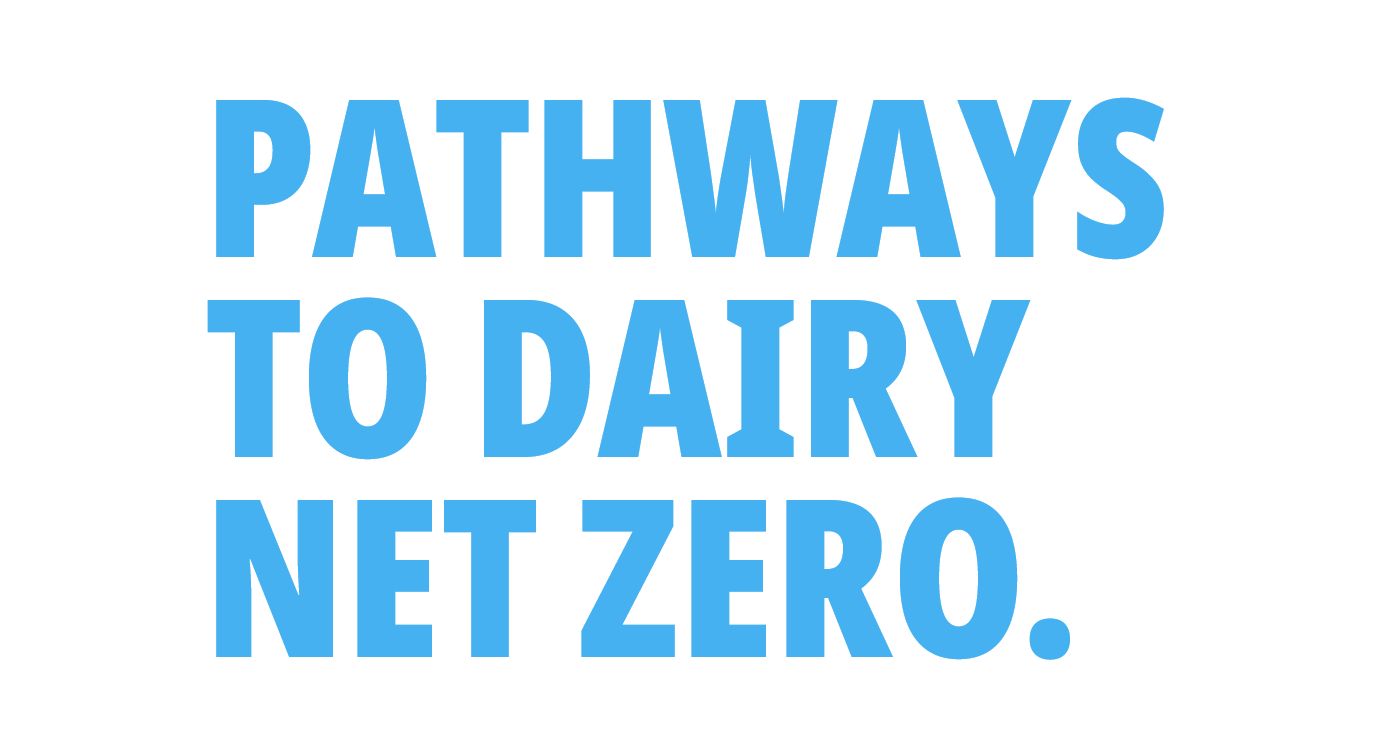
GDP Perspective Papers Cover Sustainability, Access to Dairy in Developing Countries
GDP Perspective Papers provide valuable insight into the latest studies in nutrition science, giving members and the dairy sector a chance to understand the bigger picture on studies that might not get as much attention.
GDP’s April Perspective Paper focused on recent research that shows when nutrition, socioeconomics and the environment are considered, semi-skimmed milk is a more sustainable choice than plant-based beverages. The article also notes the complications of recommending foods based on single metrics and makes a compelling case for why environmental factors alone should not determine the sustainability of a product. Also, two media outlets wrote about the paper, including UK-based Dairy Industries International, which featured the paper in a story on its website and newsletter.
The June Perspective Paper showed that there is compelling evidence that dairy consumption improves nutrition and health, particularly among young children, in low-and middle-income countries (LMICs). However, despite dairy’s strong association with reductions in stunting, wasting, and other conditions related to undernutrition in early life, dairy consumption remains low in several regions globally for a variety of reasons. The paper, “Dairy Development and Nutrition in Low- and Middle-Income Countries: Hurdles, but Plenty of Opportunities” examines this issue with insights from a recent study published in the journal Food Policy as well as reports and programs, including Dairy Nourishes Africa.
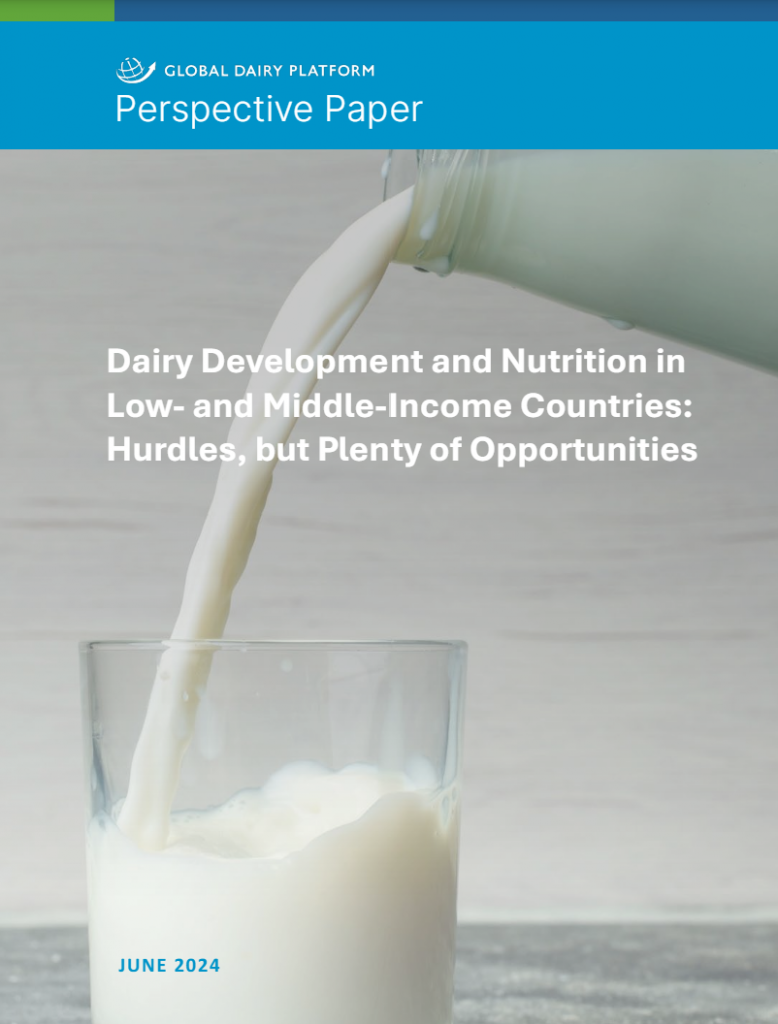
Webinar Covers Research into Dairy’s Essential Role in Diets to Prevent, Mitigate Diabetes
More than 400 registered to attend the June 27 live GDP webinar “Dietary Interventions Aimed at Reducing the Global Burden of Diabetes,” which featured two international experts. Dr. Anthony Hanley and Dr. Osama Hamdy talked about the global burden of diabetes, highlighting research conducted in understudied, high-risk populations, and dietary interventions that can help mitigate risk and improve outcomes around the world. The webinar was moderated by Beth Bradley, PhD, Chief Science Officer at Global Dairy Platform.
Type 2 diabetes, a largely preventable and, in some cases, reversible disease, is a leading cause of death and disability worldwide. Prevalence of type 2 diabetes is increasing globally, and it is projected that by 2050, more than a billion people will be living with the disease, making it one of the most pressing public health issues of our time. In coming decades, type 2 diabetes will disproportionately impact people living in low- and middle-income countries and marginalized population groups. Dietary interventions that have been demonstrated effective for prevention, mitigation, and control of type 2 diabetes, incorporate nutrient-rich foods such as dairy. Dairy food consumption is associated with reduced risk of type 2 diabetes and is integral to medical nutrition therapies designed for diabetes management.
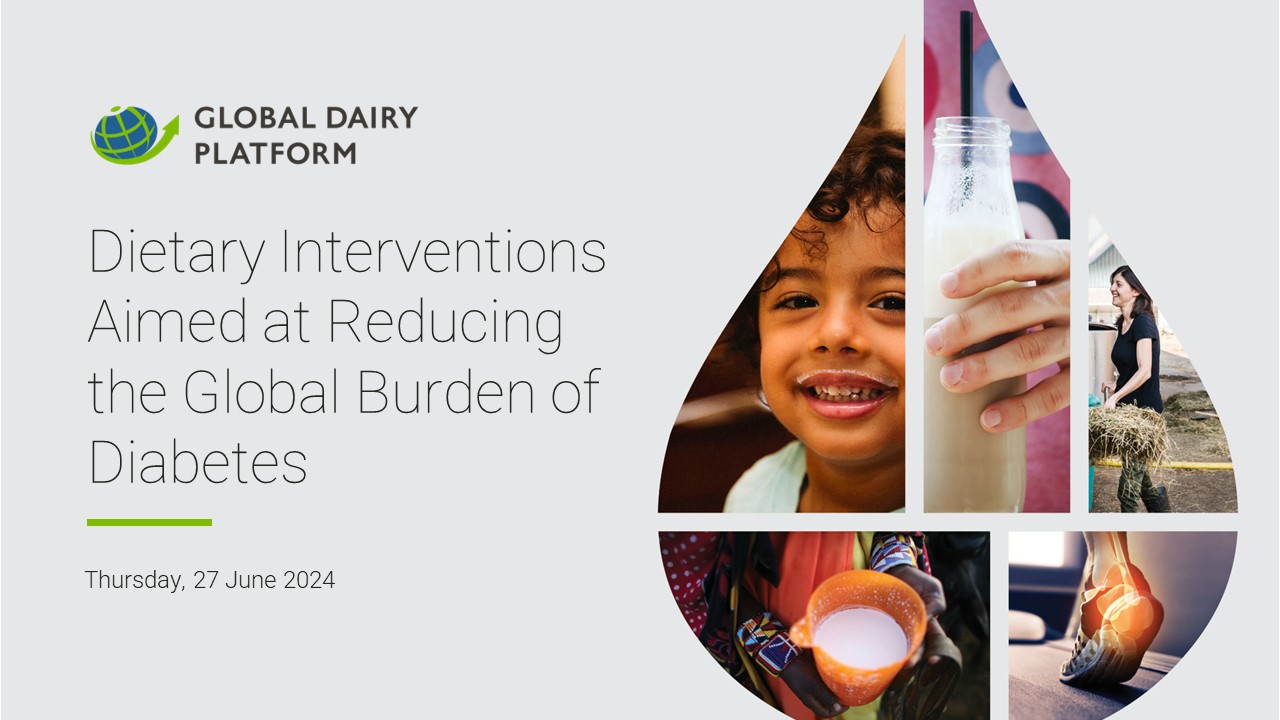
Important Dates for the Dairy Diary
October 14
2024
2024
GDP Annual Meeting
Paris
Paris
October 14
2024
2024
DSF Annual Meeting
Paris
Paris
October 16-17
2024
2024
NOURISH 2024
Paris
Paris
November 11-24
2024
2024
UNFCCC COP29
Baku, Azerbaijan
Baku, Azerbaijan
Dairy Sector – A Snapshot

1 billion people strong

600 million people living on farms

400 million additional people are supported by the full time jobs that are created in support of dairy farming

240 million people are employed, directly or indirectly, in the dairy sector

133 million dairy farms




